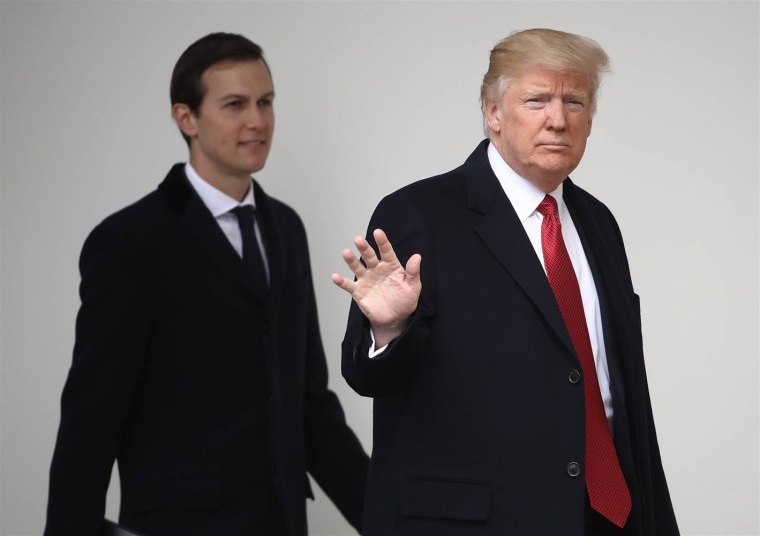In April, Donald Trump declared with confidence, "I want to see peace with Israel and the Palestinians. There is no reason there's not peace between Israel and the Palestinians -- none whatsoever." As we discussed at the time, there are all kinds of things standing in the way of peace, though the president didn't appear to recognize them.
He was, however, quite serious about the attitude. In May, Trump expanded on his earlier thoughts, and boasted there's a "very, very good chance" his administration would help strike a deal for Middle East peace. "It's something, frankly, maybe not as difficult as people have thought over the years," the president added.
With this in mind, Trump assigned his young son-in-law, Jared Kushner, to oversee the White House's efforts to reach an agreement between Palestinians and Israelis. In fact, earlier this year, Trump said of Kushner, "If you can't produce peace in the Middle East, nobody can. OK. All my life I've been hearing that's the toughest deal in the world to make. And I've seen it, but I have a feeling that Jared is going to do a great job."
Seven months later, Jared Kushner doesn't seem to agree. Wired magazine published a leaked transcript of remarks the president's senior adviser delivered to a group of congressional interns this week, and the questions he fielded about negotiating a possible peace deal.
[Kushner] doesn't directly answer either question, but he does reveal that, in his extensive research, he's learned that "not a whole lot has been accomplished over the last 40 or 50 years." He also notes that he's spoken to "a lot of people," which has taught him that "this is a very emotionally charged situation."Later in the clip, Kushner expresses frustration at others' attempts to teach him about the delicate situation he's been inserted into, saying, "Everyone finds an issue, that 'You have to understand what they did then' and 'You have to understand that they did this.' But how does that help us get peace? Let's not focus on that. We don't want a history lesson. We've read enough books. Let's focus on, How do you come up with a conclusion to the situation?"
He added, "So, what do [Trump administration officials] offer that's unique? I don't know."
This doesn't exactly inspire confidence.
The president's 36-year-old son-in-law, who had no background in government or foreign policy before starting at the White House this year, has been tasked with one of the most difficult diplomatic challenges in the world, and he's apparently concluded that the Israeli-Palestinian conflict is "emotionally charged" -- and he no longer sees value in reading about the subject.
It's almost as if Kushner is in way over his head. Trump's confidence in him notwithstanding, the senior White House adviser seemed to realize on Monday that he's probably not the guy who'll deliver on this long sought goal.
As for the president, didn't Trump tell us in May that the peace process may not "as difficult as people have thought over the years"? It's almost as if he had no idea what he was talking about.
